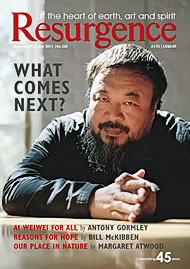This book takes us through the dark nights and unexpected revelations of an experience the author calls ‘The Experiment’. Using her own life as the test case, Susan Maushart decides to disconnect from all media for six months: not just herself, but her three children too.
To some this might not seem such a mighty deed, but to her family it was akin to a sudden strangulation. “We didn’t just use media – we inhabited it,” she explains. Aged 14, 15 and 18, her children were true ‘Digital Natives’, having grown up with a 24/7 connectivity of constant technological multitasking. A typical scene, for example, would be of the children simultaneously doing their homework, stalking friends through Myspace, listening to their iPods, downloading a film onto their laptop and texting from their mobile phones.
This is the iGeneration: children who are born and raised completely wired – a statement backed by research showing that American children, for instance, spend almost as much time online as they do sleeping.
Maushart is not a technophobe; on the contrary, she had a serious media habit herself, not only holding a PhD in media ecology but also imbibing media and technology through her job as a journalist, and she admits she too was a fully signed-up addict: “I relied on my iPhone as a kind of feeding tube, delivering a steady stream of podcasts, emails and applications that I devoured to keep me satisfied…I felt naked walking down the street without my headset.”
‘The Experiment’ was born from a rereading of Thoreau’s Walden and a feeling it was time for her own family to retreat. She had a hunch that technology was stealing her children, cutting them off from one another and from her. “Our media began to function as a force field separating my children from what my son, only half ironically, called ‘RL’ (Real Life),” she muses. “The girls were becoming mere accessories of their own social-networking profile, as if real life were simply a photo op for the next status update.”
So she pulled the plug and wrote a book that documents the whole family going cold turkey. It is candid, revealing and funny. Some of it is in diary format; some resembles a ‘lite’ lifestyle column. But to my mind the more successful parts are the philosophical passages that reveal the extent of Maushart’s research on technology and culture. This is a fascinating read, enriched by alarming statistics and enlightened quotes from thinkers such as Samuel Johnson and William Morris.
So how did the family cope? At first, boredom kicked in and then, from this boredom, a different type of connectivity and community emerged. The family rebanded. They chatted, caught up – shallowly and intensively – and hung out together, as they’d never done before. The eldest, Anni (with a calculated extra 35 hours of week freed up from her media habit), started bringing the kitchen to life; coconut curries and banana muffins began to appear and she set about compiling a cookbook.
Ben rediscovered his saxophone, found a group of like-minded musicians and immersed himself in the world of jazz. He also became an avid reader. And the youngest, Sussy, transferred her technological allegiance to the landline and stuck to it. At the same time, she seemed to go into a state of profound exhaustion, confirming her mother’s intuitive hunch that multitasking had been robbing Sussy of sleep for years. Unplugged, she entered a state of hibernation and then, after weeks of listlessness, emerged refreshed with a new and healthier sleeping pattern.
Maushart was clearly shocked by the profound changes to all their lives once they unplugged. Many of the family’s ‘normal’ habits disappeared overnight; the constant ‘micro-tweaking’ of family arrangements through texting and phoning stopped, and with it a great peace descended. The previously accepted notion that everyone ate different foods at different times stopped and family mealtimes returned.
Maushart uses a lot of exclamation marks to convey her jaw-dropping astonishment when she finds her son playing Monopoly with a friend, or returns home to see a group of teenagers singing around the piano. And indeed, the strength of this book lies in the mother’s absolute astoundment. She did not set out to prove a point. She is not an overprotective mother on a crusade and she is utterly amazed at how both her own and her children’s lives changed for the better once they all unplugged.
As parents we often feel bound to ‘entertain’ our children and keep the dreaded boredom at bay, but as Maushart has so incontrovertibly demonstrated, within boredom lie the roots of creativity and an authentic connectivity – for children and adults alike.







